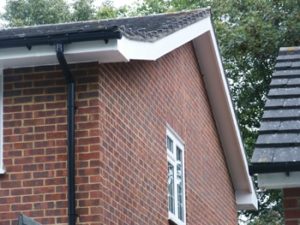
8
JulyExpert Soffit Installation Tips To Relax Your Daily Life Expert Soffit Installation Trick That Should Be Used By Everyone Know
Expert Soffit Installation: A Comprehensive Guide
Soffit installation is an important aspect of both new building and home renovation projects. The soffit, which is the underside of a roofing system overhang, serves both a visual and practical purpose in a building's style. Appropriately setting up soffits can improve curb appeal, protect the structural components of a roofing system, and improve ventilation in attics. This article intends to offer an extensive introduction of soffit installation, consisting of types, products, professional strategies, and often asked concerns.
Comprehending Soffits
What is a Soffit?
A soffit is the horizontal surface that can be discovered below the eaves of a home. Its primary function is to provide a completed look and cover exposed rafters or beams. Soffits can likewise play an essential role in ventilation by enabling air to distribute in between the roofing system and the attic.
Types of Soffits
There are a number of kinds of soffit products offered on the market, each with its own set of benefits and disadvantages.

Vinyl Soffits: Lightweight and low-maintenance, vinyl is resistant to wetness and offers exceptional insulation.
Aluminum Soffits: Durable and rust-resistant, aluminum soffits are readily available in different colors and do not need painting.
Wood Soffits: Offering a conventional aesthetic, wood soffits can be painted or stained. Nevertheless, they need routine maintenance to prevent rot and bug damage.
Fiber Cement Soffits: This material is highly durable, providing resistance to wetness and pests while looking like wood in look.

Soffit Installation: A Step-by-Step Guide
The following actions lay out an expert technique to soffit installation:
1. Gather Necessary Tools and Materials
Before commencing installation, collect the following tools:
- Measuring tape
- Circular saw or miter saw
- Drill and screws
- Level
- Security goggles
- Respirator (for dust security)
- Ladder
2. Measure the Area
Accurate measurements are vital for a tight fit. Utilize a measuring tape to assess the measurements of the location where the soffit will be set up. It is essential to measure both the length and width, considering the overhang's depth.
3. Pick the Right Material
Select your soffit material based on aesthetic choice, budget plan, and desired durability. Whether going with vinyl, aluminum, wood, or fiber cement, make certain that it follows regional building regulations.
4. Prepare the Working Area
Begin by getting rid of any old soffit or particles. Ensure the area is clear and safe before continuing with installation.
5. Cut the Soffit Panels
Utilizing a circular or miter saw, carefully cut the soffit panels according to the measurements taken earlier. Constantly use safety goggles while cutting.
6. Install the Soffit Panels
- Begin at one end of the eave, attaching the soffit panels with screws.
- Ensure they are level and lined up correctly.
- Use a drill to secure the panels firmly, permitting small expansions and contractions.
7. Total the Installation
When all panels are set up, examine the joints and edges for any gaps. These gaps can cause wetness issues and can decrease the effectiveness of ventilation systems. Fill any obvious gaps with suitable sealants.
Table: Comparison of Soffit Materials
| Product | Toughness | Maintenance | Cost | Visual Appeal |
|---|---|---|---|---|
| Vinyl | High | Low | Moderate | Range of colors |
| Aluminum | Extremely High | Extremely Low | Greater | Various surfaces |
| Wood | Moderate | High | Low to Moderate | Standard look |
| Fiber Cement | Extremely High | Moderate | Moderate to High | Looks like wood |
Frequently Asked Questions about Soffit Installation
Q: How frequently must I check or change my soffits?A: It is suggested to inspect soffits each year for damage, moisture, or bug issues. Replace them if they reveal indications of wear or damage. Q: Can I install soffits myself?A: With the right tools, materials, and following fundamental standards, property owners can install soffits themselves. Nevertheless, employing a professional is suggested for intricate structures. Q: Do soffits need ventilation?A: Yes, ventilated soffits are essential for allowing air to
flow and avoiding moisture accumulation in attic areas. Q: What are the benefits of soffit installation?A: Benefits consist of improved aesthetic appeals, security against the aspects, increased energy performance, and enhanced wetness control. Q: How can I paint wood soffits?A: To paint wood soffits, it's best to use a premium outside paint after sanding the surface, using a primer, and then two coats of paint
. Expert soffit installation is a vital process that integrates workmanship, knowledge of materials, and an understanding of building regulations. Whether carrying out a DIY job or working with specialists, understanding the
best products and processes can guarantee that the soffits of a building not just enhance its appearance however also contribute to the general health and performance of the home. By following the outlined steps, homeowners can accomplish an effective and aesthetically pleasing result that offers years of utility and aesthetic enjoyment.


Reviews